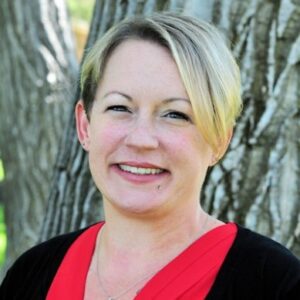
Robin Yochum brings Nevada’s energy efficiency vision to the Code Council’s residential energy code committee

In December, Nevada published its first climate strategy, which focuses on reducing greenhouse gas emissions and buttressing infrastructure resilience. Among its many ambitious goals, the strategy proposes an enforceable cap on emissions that would enable the state to reduce greenhouse gas emissions (as compared to 2005 levels) 28 percent by 2025 and 45 percent by 2030, with a target of net-zero emissions by 2050. Yochum said that the strategy is complemented by recent state legislation on a slew of energy issues, including transportation electrification and appliance standards.
This is where Yochum’s 20-plus years of experience in residential and commercial construction comes into play. In addition to helping advance legislative policies for improving energy efficiency and reducing carbon emissions in the built environment, she also participates in the state’s review process for updates to the IECC, oversees the development and adoption of appliance standards, and administers Nevada’s HEROS program, which provides no-cost energy-efficiency improvements for low-income seniors.
Yochum is active in a number of Code Council committees, including the Building Membership Council, the Raise the Profile Subcommittee, the Community Building Best Practices and Innovation Subcommittee, and the Sustainability Membership Council’s Zero Carbon Subcommittee, where she chairs the Implementation and Workforce development task group. “My experience with energy codes over the last five years has given me the confidence as well as the knowledge to facilitate the kinds of discussions that we will have about how proposals submitted would be applicable to the new edition of the IECC,” Yochum acknowledged. “Because of my experience not only with codes but also with all of the state’s energy efficiency programs within our office, I have been able to develop what I believe is a more holistic understanding of energy efficiency. A really great energy efficiency code helps the built environment in so many more ways than just construction. It’s also about lifecycle development and the overall benefit to the environment and to our communities.”
One of the holistic aspects of energy efficiency codes that particularly interests Yochum is their effect on equity. As the state’s climate strategy says, “[a]cross the United States and in Nevada, low-income communities, people of color and indigenous populations have disproportionately borne the burden of climate change impacts. As temperatures continue to rise and climate-related challenges expand and intensify, particular attention must be paid to these vulnerable populations.”
“An efficient built environment reduces the energy burden on historically underserved communities,” Yochum explained. “Some people are spending over three-quarters of their income just to pay their energy bills. A more energy-efficient built environment will enable them to redirect their spending on other things that they really need, like food, transportation and even educational opportunities.”
Yochum points out that energy efficiency also has a demonstrable impact on individual health, which can also disproportionately affect vulnerable populations. “Unfortunately, underserved communities really do struggle with healthy indoor environments,” she said. “Improved energy efficiency can help lead to improved indoor air quality, whether it’s in their residence or as their place of business. So, the more energy-efficient we become, the healthier those environments will be. And better energy efficiency codes are the foundation of that kind of improvement.”
Education is a big part of Yochum’s job at the Nevada Governor’s Energy Office; she sees it as an essential component of a holistic energy-efficiency strategy. One of the projects that she and her team are working on right now is curriculum development to train the next generation of code officials. “We’re working with community colleges across the state on implementing a code curriculum within their existing programs,” she explained. “That way, they don’t have to reinvent the wheel and those new up-and-coming professionals will be able to really gain an understanding of what codes are and what an important role they can play in their careers.”
“We honestly love working with the younger generation — middle school, high school and at the community college level,” she added. “I think that the more we’re out there advertising what kind of career you can have in this profession and how great of a career it can be, the more they’ll come to the table. In Nevada, we’re already seeing it.”
Yochum’s enthusiasm for energy-efficiency codes is relatable to students because it comes from her own personal experience. She understands the “light bulb moment” that happens when people suddenly understand how it plugs into the bigger picture of building construction and safety. “Prior to working for the governor’s office, to me energy efficiency meant just turning off the lights and closing the refrigerator door,” she admitted with a laugh. “I didn’t really know what energy efficiency was. But learning what it is and how impactful it can be, it has really just become a passion of mine to advance energy efficiency within our communities.”
It’s a passion she’s very much looking forward to sharing with her colleagues on the Residential Energy Code Consensus Committee. “I really am thankful to the Code Council board for selecting me to serve in this role,” Yochum shared. “It’s an honor to work with all of these fine folks. And I’m honored to represent Nevada in this forum!”







